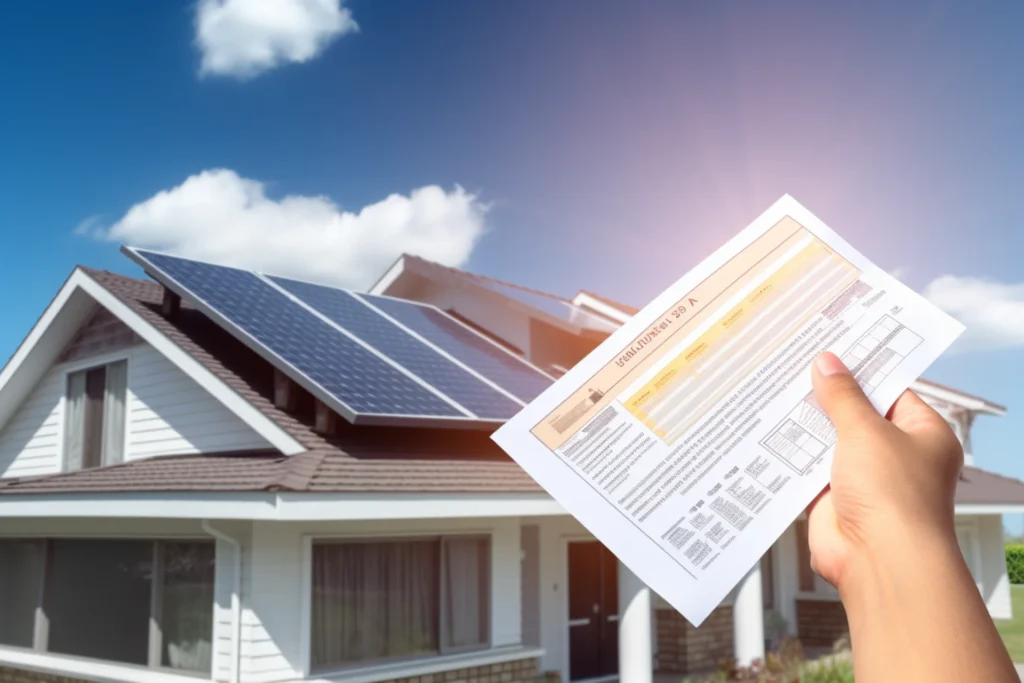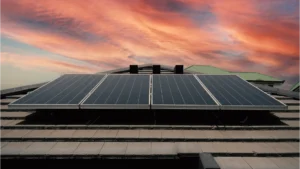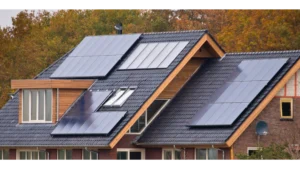
The installation of solar panels has become an increasingly popular trend in recent years as more individuals seek to reduce their carbon footprint and save on energy costs. However, many still wonder if they will receive an electric bill after installing solar panels. The answer is not a simple yes or no, as several factors can influence whether or not you receive an electric bill with solar panels installed.
In this article, we will explore the factors affecting your electricity bills when installing solar panels. From understanding your energy usage and the size of your solar panel system to net metering and financing options, we will provide you with all the information you need to make an informed decision about switching to solar power. Whether you are interested in reducing your environmental impact or saving money on energy costs, this article is designed to help you understand how solar panels can impact your electricity bills and what steps you can take next.
Comprehending energy consumption is paramount in assessing the impact of solar panel integration on personal electricity usage. This involves understanding how much energy is consumed and identifying ways to reduce it through energy conservation practices. By reducing consumption, solar panel owners can maximize the benefits of their installation and potentially eliminate or significantly reduce their monthly utility bill.
To understand your energy usage, it’s important to review your past utility bills and identify patterns in your consumption. This will give you an idea of how much electricity you typically use and when you use it the most. From there, you can begin implementing strategies for reducing energy consumption, such as turning off lights and electronics when not in use or upgrading to more efficient appliances.
Reducing consumption is especially important for customers with solar panels because excess energy generated by the panels can be sold back to the grid, but only at a fraction of the cost consumers pay for electricity from their utility provider. Therefore, every kilowatt hour of electricity saved by reducing consumption is more valuable than ever.
Incorporating these electricity usage habits into daily life helps save money on monthly electric rates and contributes to a cleaner environment by reducing overall energy demand. Adopting these practices may require some initial effort, but they ultimately benefit both personally and globally with reduced electricity use.
The size of your solar panel system plays a crucial role in determining the amount of energy it can produce. A larger system will generate more electricity, while a smaller one will provide less power. To ensure optimal results, it’s important to size your solar panel system accordingly based on your energy usage and other factors such as available space and budget.
Understanding the impact of system size on energy production is crucial for maximizing the efficiency and effectiveness of solar panel installations. The size of a solar panel system directly affects its power output, which means that larger systems will produce more energy than smaller ones. However, several factors must be considered when determining the optimal system size for a particular household or business, including electricity usage, utility grid, electric rates, and electric bills.
Firstly, it’s important to consider the available roof or ground space for installation. A larger system may not be feasible if there isn’t enough space to accommodate it. Additionally, the cost of larger systems can be higher than smaller ones, so budget constraints must also be considered. Finally, energy usage patterns should also be considered when determining system size. For example, households with high energy demands may require a larger system to meet their needs. By optimizing placement and choosing an appropriate system size based on these factors, homeowners and businesses can maximize their solar panel efficiency and reduce their reliance on traditional utility providers while still receiving monthly bills for any additional electricity used beyond what they generate through their panels.
Optimizing the size of a solar panel system is crucial for achieving maximal energy production and reducing reliance on traditional electricity providers . One important factor to consider when designing a solar panel system is available installation space. The amount of roof or ground space available will determine the number and size of panels that can be installed.
Another important consideration is budget constraints. While larger systems will produce more energy, they also come with higher upfront costs. It’s important to find a balance between system size and affordability. Additionally, energy usage patterns should be considered when sizing a solar panel system. Understanding peak usage times and overall consumption can inform the design of a system that efficiently meets energy needs throughout the day. Finally, properly placing solar panels can significantly impact their efficiency and output. When designing a solar panel system, it is important to consider factors such as shading from trees or buildings.
Net metering enables solar panel owners to offset their electricity consumption with the excess energy they produce, which affects how utilities bill them for their energy usage. Essentially, net metering allows homeowners to send the extra electricity their solar panels produce back into the grid in exchange for credits on their utility bills. These credits can offset future bills during periods of low solar production or high energy consumption.
One of the primary benefits of net metering is that it helps homeowners save money on their utility bills. Homeowners can reduce or even eliminate their monthly electric bills by producing more electricity than they consume. Sometimes, homeowners may even receive credit from their utility company if they produce more energy than they use.
However, it’s worth noting that not all states offer net metering programs, and those that do may have different regulations and requirements for electric rates. Some electric companies may charge additional fees or limit the amount of excess energy that can be credited back to customers’ electricity bills. Additionally, some states may not allow customers with renewable energy systems to sell excess energy back to the grid.
While net metering isn’t a guarantee for cost savings or reduced dependence on traditional electric companies and their rates, it provides an important incentive for homeowners looking to invest in renewable energy systems like solar panels. It also helps promote a cleaner environment by encouraging clean and sustainable power generation sources. As such, it’s worth considering as part of any long-term strategy for reducing one’s carbon footprint, achieving greater energy independence, and lowering electric bills.
Various factors, including the location and climate, influence the performance of solar panels. Understanding how these factors impact the output of your solar panel system can help you make informed decisions about your energy usage. Additionally, it is essential to comprehend your local utility rates as they significantly determine the financial benefits of installing solar panels. Therefore, this discussion will explore how climate affects solar panel performance and provide insights into understanding local utility rates for the optimal use of solar panels.
Understanding the impact of climate on home energy and clean energy solar panel performance is crucial for maximizing their efficiency and output. The efficiency of solar panels is affected by several factors, with the climate being one of the most significant. Here are three ways weather can affect solar panel efficiency and energy credits.
Temperature: Solar panels work best when cool; high temperatures reduce efficiency. When the temperature rises above 25°C, the solar panel’s performance drops by about 0.5% per degree Celsius increase.
Cloud cover: Solar panels rely on sunlight to produce electricity, so cloudy days can significantly affect their output. On a completely overcast day, a solar panel may only produce around 10-25% of its maximum output.
Rain: Rain can help improve the performance of solar panels as it washes away dust and debris that can accumulate on them over time. However, heavy rain or storms could cause damage to your solar panel system if not installed correctly.
By understanding these factors and how they impact your solar panel system’s performance in different climates, you can optimize your energy production for your location’s specific conditions and maximize your savings on your utility bill while reducing carbon emissions into our atmosphere.
Familiarizing oneself with the local utility rates is a crucial step toward optimizing energy production and reducing costs for solar panel users. Understanding local utility rates can help you avoid peak-hour charges and take advantage of time-of-use pricing plans. Peak hours are typically when energy demand is high, such as mid-afternoon or early evening. During these hours, electricity prices are higher due to the increased demand on the power grid.
To avoid these peak-hour charges, it’s important to understand your local utility rates and schedule your energy usage accordingly. Time-of-use pricing plans offer lower electricity rates during off-peak hours, which could save you money on your monthly bills. By optimizing your home’s energy usage during non-peak hours, you can reduce overall costs and maximize the benefits of having solar panels installed on your property.
This section delves into various financing options available for individuals who have invested in solar panel systems. Investing in a solar panel system can be expensive, but different financing options exist, such as leasing or purchasing the panels outright. Leasing allows homeowners to utilize the benefits of solar energy without investing a large sum of money upfront. On the other hand, purchasing the panels outright provides long-term savings and ownership of the system.
Another factor to consider when investing in solar panels is tax incentives for homeowners. Purchasing a solar panel system can qualify for federal tax credits, reducing overall costs and making becoming an owner more affordable. Some states also offer tax credits or rebates, further incentivizing investment in solar panels.
It’s also important to understand your energy usage when considering financing options for your solar panel system. Peak demand and time of use rates determine how much electricity you use during certain times of day and can affect overall energy bills. By understanding these factors, homeowners can make informed decisions on their financing options and usage habits.
In summary, financing options play an important role in determining how accessible owning a solar panel system is for many homeowners. Leasing or purchasing the panels outright and taking advantage of tax incentives are two popular choices to lower initial costs while still enjoying reduced utility bills over time. Understanding peak demand and time-of-use rates are crucial elements that will help homeowners make better-informed decisions about their energy usage habits and provide them with greater freedom over their finances in the long run.
Regular maintenance is crucial for solar panels to function at optimal performance. This includes cleaning the panels, checking connections, and ensuring proper alignment with the sun. Common repairs for solar panels involve fixing or replacing faulty components such as inverters, batteries, or damaged wiring. These repairs can come at a cost, but regular maintenance can help prevent major issues and prolong the lifespan of your solar panel system.
Maintaining the optimal performance of solar panels requires routine maintenance. A cleaning schedule is necessary to remove dirt, debris, and other elements obstructing the panels from receiving sunlight. The frequency of cleaning depends on the location and environment surrounding the solar panel installation. Panels in areas with higher pollution levels or dust may require more frequent cleaning than those in cleaner environments. A panel inspection should also be conducted periodically to ensure no cracks or damage could affect overall performance.
Regular maintenance is crucial for ensuring the optimal performance of solar panels and maximizing energy production. In addition to cleaning and inspecting the panels, other components, such as inverters and batteries, also require regular checks to ensure they function correctly. Proper maintenance ensures maximum energy production and prolongs the system components’ lifespan, reducing repair costs in the long run. Overall, a well-maintained solar panel system can provide homeowners with reliable renewable energy while reducing dependence on traditional utility companies.
Solar panels require occasional repairs, and understanding the common issues and associated costs is important for homeowners to ensure their renewable energy system operates at its best. Some of the most common repairs that solar panel owners may encounter include fixing broken or damaged panels, replacing inverters or wiring, and addressing issues with mounting components. Troubleshooting tips can help homeowners diagnose potential problems, such as low power output or inconsistent performance, before calling in a professional.
When addressing these common repairs, it’s important to consider cost-effective solutions to minimize expenses while ensuring optimal performance. For example, repairing a single damaged panel rather than replacing the entire array can save money in the short term. Similarly, regular maintenance tasks such as cleaning panels and checking wiring connections can prevent more serious issues from developing down the line. It’s also worth considering investing in high-quality materials and components upfront to reduce the likelihood of needing frequent repairs later on. By staying informed about common repairs and taking proactive steps to address them, solar panel owners can ensure their renewable energy systems continue to provide reliable power for years.
Integrating battery storage into a household’s energy system can significantly increase the efficiency and sustainability of their energy usage. With solar panels already in place, the addition of batteries can help maximize the benefits of renewable energy by storing excess electricity generated during peak hours for use during periods when sunlight is limited or nonexistent. This reduces dependence on traditional utility companies and provides backup power during potential blackouts or emergencies.
Battery lifespan is an important factor to consider when investing in this technology. Lithium-ion batteries are commonly used in residential systems and have a lifespan of around 10-15 years. However, other factors, such as temperature and frequency of charging/discharging cycles, can affect the longevity of these batteries. It is recommended to consult with a professional to determine the most suitable type and size of battery storage system for individual households.
Regarding backup power, battery storage can provide peace of mind during unexpected power outages caused by storms or other natural disasters. By having stored electricity available at all times, homeowners do not have to rely on noisy generators that produce harmful emissions and require frequent refueling. Additionally, some states offer incentives such as tax credits for installing battery storage systems which can further offset costs and make solar installation an attractive investment option for community solar and grid solar.
Integrating battery storage into a household’s energy system has numerous advantages, including increased efficiency, sustainability, cost savings, and backup power supply. While initial installation costs may be higher than traditional utility bills in the short term, long-term savings are possible through reduced reliance on traditional utility companies and potential incentives offered by different states or countries. Battery technology continues to improve rapidly, making it an exciting prospect for people who value independence from centralized electrical grids while contributing positively towards environmental conservation efforts worldwide.
Besides battery storage, there are other factors to consider regarding solar panel installation. One of these is the monitoring of your system.
Current Subtopic: Monitoring Your System
Tracking their performance regularly is important to ensure that your solar panels are working efficiently. This means monitoring how much energy they generate and ensuring they deliver the expected output. Remote monitoring tools make it easy for homeowners to monitor their systems without physically checking them.
To help you understand why monitoring your system is so important, here are three key benefits:
Early detection of issues – Remote monitoring allows you to detect any issues with your system early on. For instance, if a panel isn’t generating as much energy as it should be, you’ll receive an alert and can address the issue before it becomes more serious.
Increased efficiency – By tracking the performance of each panel in your system, you can determine which ones may not be functioning optimally and take corrective action. This can boost the overall efficiency of your system and help you get more out of your investment.
Peace of mind – Knowing that your system is being monitored 24/7 gives homeowners peace of mind that everything is running smoothly. If anything goes wrong, remote monitoring tools make it easy to quickly identify and resolve the issue.
In summary, monitoring your solar panel system is critical for maximizing its efficiency and lifespan while avoiding unexpected repair costs down the road. With remote monitoring tools available today, keeping tabs on your solar investment has never been easier or more convenient!
Understanding your utility bill with solar panels is crucial in taking action to reduce your energy costs. By analyzing and comprehending the charges on your electricity bill, you can identify areas where you can save money by reducing energy usage during peak hours or adjusting your solar panel system’s output. Additionally, implementing energy-saving strategies such as investing in high-efficiency appliances or monitoring your daily consumption can help lower monthly bills even further.
This section overviews how solar panels interact with the home utility billing system. While installing solar panels at home may significantly reduce your reliance on the grid, it does not necessarily mean that you will be completely off the grid or no longer receive a home utility bill. Here are some key factors to consider when understanding your home utility bill with solar panels.
Analyzing savings: With solar panels, you can generate electricity and lower your monthly energy bills. However, the savings largely depend on various factors, such as the size of your solar panel system and how much electricity you consume. It is important to monitor your energy consumption and assess whether installing solar panels is a cost-effective decision for you.
Billing adjustments: If you generate more electricity than you consume, your excess power may be credited back to the grid through net metering. This means that instead of paying for all the electricity you consume from the grid, your utility bill may reflect only the difference between what you consumed and what your solar panel system generated. On the other hand, if your solar panel system does not generate enough power to cover your energy needs, you will still pay for any additional electricity needed from the grid.
Overall, while having solar panels can lead to significant energy savings and environmental benefits, it is essential to understand how they interact with the billing system to fully maximize their potential benefits.
Reducing energy costs requires proactive measures beyond installing solar panels and understanding their interaction with the utility billing system. While solar panels can greatly reduce your electricity bills, other ways exist to further reduce expenses. One effective strategy is to invest in energy-efficient appliances. These devices use less power than traditional appliances while maintaining the same level of performance. For example, an energy-efficient refrigerator consumes up to 40% less energy than a regular fridge, translating into significant savings over time.
Another way to reduce energy costs is by changing certain habits around the house. Simple actions such as turning off lights when leaving a room or unplugging electronics when not in use can add up to savings over time. Additionally, you may consider upgrading your home insulation or sealing any drafts around windows and doors to improve heating and cooling efficiency. By implementing these strategies alongside solar panel installation, you can maximize the benefits of clean and renewable energy while reducing overall expenses for your household.
In conclusion, installing solar panels does not necessarily mean you will no longer receive a utility bill. The amount of energy your solar panel system generates and how much energy you use will determine whether or not you still need to pay for electricity from the utility company. Net metering allows homeowners with solar panels to sell any excess energy they generate back to the grid in exchange for credits on their utility bills.
Location and climate play a significant role in determining the effectiveness of solar panels, financing options, and maintenance requirements. Battery storage is also an option for storing excess energy their solar panel system generates. Monitoring your system regularly and scheduling maintenance and repairs as needed is important.
Overall, installing solar panels can be a smart investment for homeowners looking to reduce their reliance on traditional power sources. Still, it’s important to understand the potential costs and benefits before switching. By considering factors such as location, system size, net metering, battery storage options, financing options, and maintenance requirements, homeowners can make informed decisions about whether or not going solar is right for them.
Property valuation is a crucial aspect of homeownership, and the installation of solar panels can significantly impact it. Studies have shown that homes with solar panels sell for more than those without, as they offer energy savings and environmental benefits. The value added by solar panels varies depending on factors such as location, size of the system, and local electricity rates. In addition to increasing property value, solar panels provide long-term energy savings by reducing or eliminating monthly utility bills. Homeowners who invest in solar panel systems can enjoy the financial benefits of reduced energy costs while contributing to a cleaner environment. Overall, installing solar panels can be an attractive feature for potential buyers and increase the overall value of a home.
Selling excess energy back to the grid is common among residential solar panel owners. This process, known as net metering, allows homeowners to sell any surplus electricity generated by their solar panels back to their utility company at a fair market price. Net metering requires the installation of an additional meter that keeps track of the electricity produced and consumed by the homeowner’s system. The amount of money earned from selling excess energy varies depending on factors such as state laws, utility regulations, and solar panel efficiency. Net metering provides a viable option for those looking to offset the cost of installing solar panels while contributing to a sustainable future.
Solar panels may not work during a power outage unless they are equipped with backup batteries. Grid-tied systems without backup batteries will not produce electricity during an outage as they rely on the grid for power. Backup batteries can provide electricity to essential appliances and devices in a home during an outage, allowing homeowners to maintain some functionality. It is important to note that the size and capacity of a backup battery system will determine how much energy it can store and how long it can power a home. Homeowners should consider their needs and budget when deciding whether or not to invest in backup batteries for their solar panel system. Incorporating backup batteries into a solar panel system can provide peace of mind and added security during unexpected power outages.
The installation timeline for solar panels can vary greatly depending on several cost factors. These factors include the size and complexity of the system, the availability of materials, and any necessary permits or inspections required by local authorities. Typically, a residential installation can take a few days to several weeks. It is important to consider these factors when deciding whether or not to install solar panels, as they can impact the project’s overall cost and the amount of time it takes to complete. Ultimately, however, investing in solar energy represents an opportunity for increased independence and reduced reliance on traditional utility companies.
If solar panels do not produce enough energy to meet a household’s needs, alternative solutions, and energy storage options are available. One option is to connect the solar panel system to the grid, allowing excess energy produced by the panels to be sold back to the utility company for credit. Another solution is installing an energy storage system, such as a battery, which can store excess energy for use when low solar production. These options give homeowners greater control over their energy usage and reduce reliance on traditional utility companies. While there may be initial costs associated with these solutions, they offer long-term benefits in terms of cost savings and environmental impact.

What Is The Average Roi For A Residential Solar Panel System? Share: Facebook Twitter LinkedIn Pinterest As the world becomes increasingly aware of the need

How Do I Calculate The Amount Of Energy I Need To Power My Home With Solar Panels? Share: Facebook Twitter LinkedIn Pinterest Solar energy as

Will Installing Solar Panels Increase The Value Of My Home? Share: Facebook Twitter LinkedIn Pinterest As energy prices continue to rise, homeowners are increasingly looking

Selling a Home with Solar Panels: A Complete Guide Share: Facebook Twitter LinkedIn Pinterest Can I Sell My Home With Solar Panels Installed The rise

The Amazing Benefits of Residential Solar Panels Share: Facebook Twitter LinkedIn Pinterest One of the most compelling advantages of residential solar panels is the potential

Advantages Residential Solar Panels Share: Facebook Twitter LinkedIn Pinterest The phrase “power to the people” is more than just an idiom – it’s a way